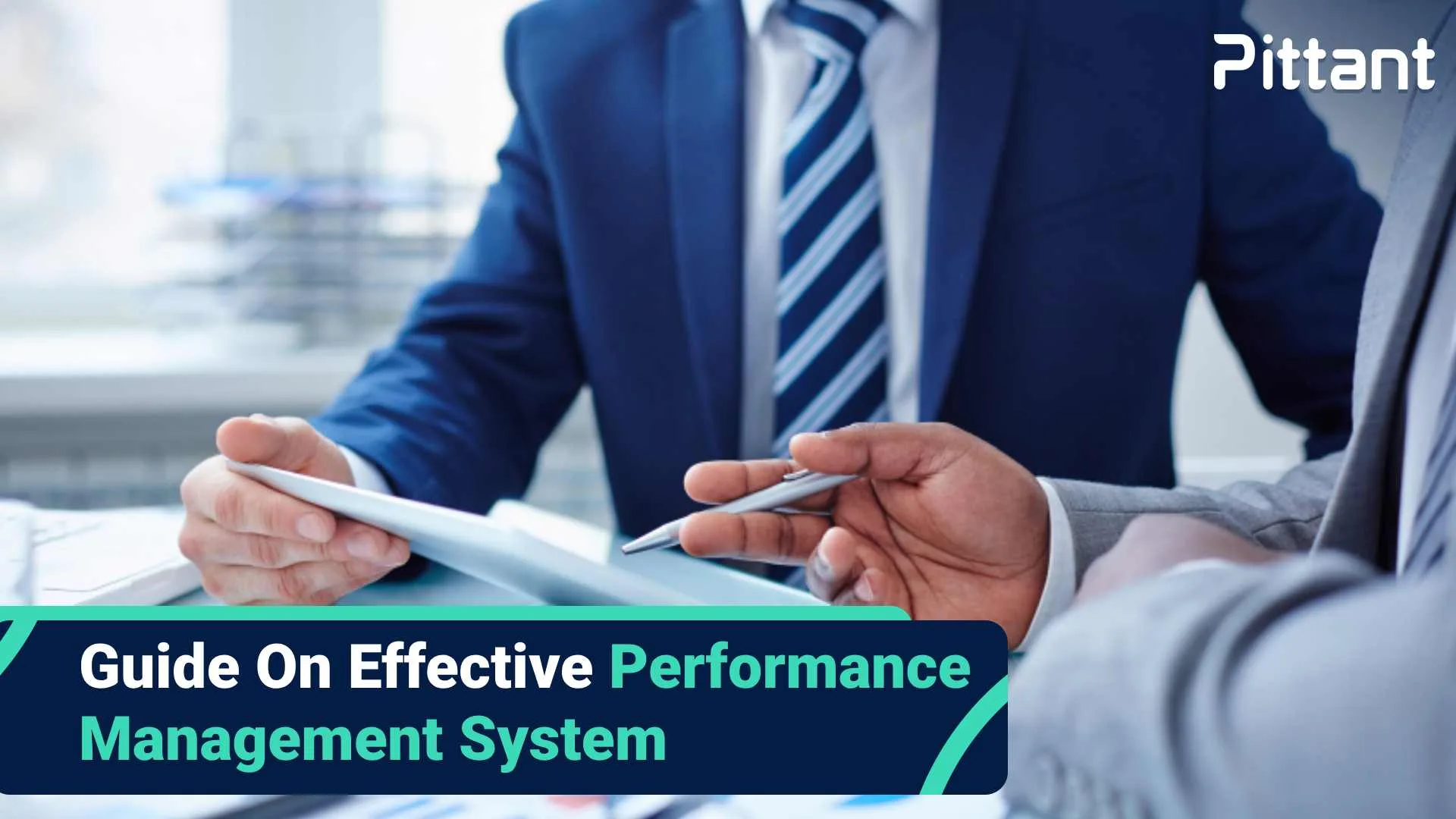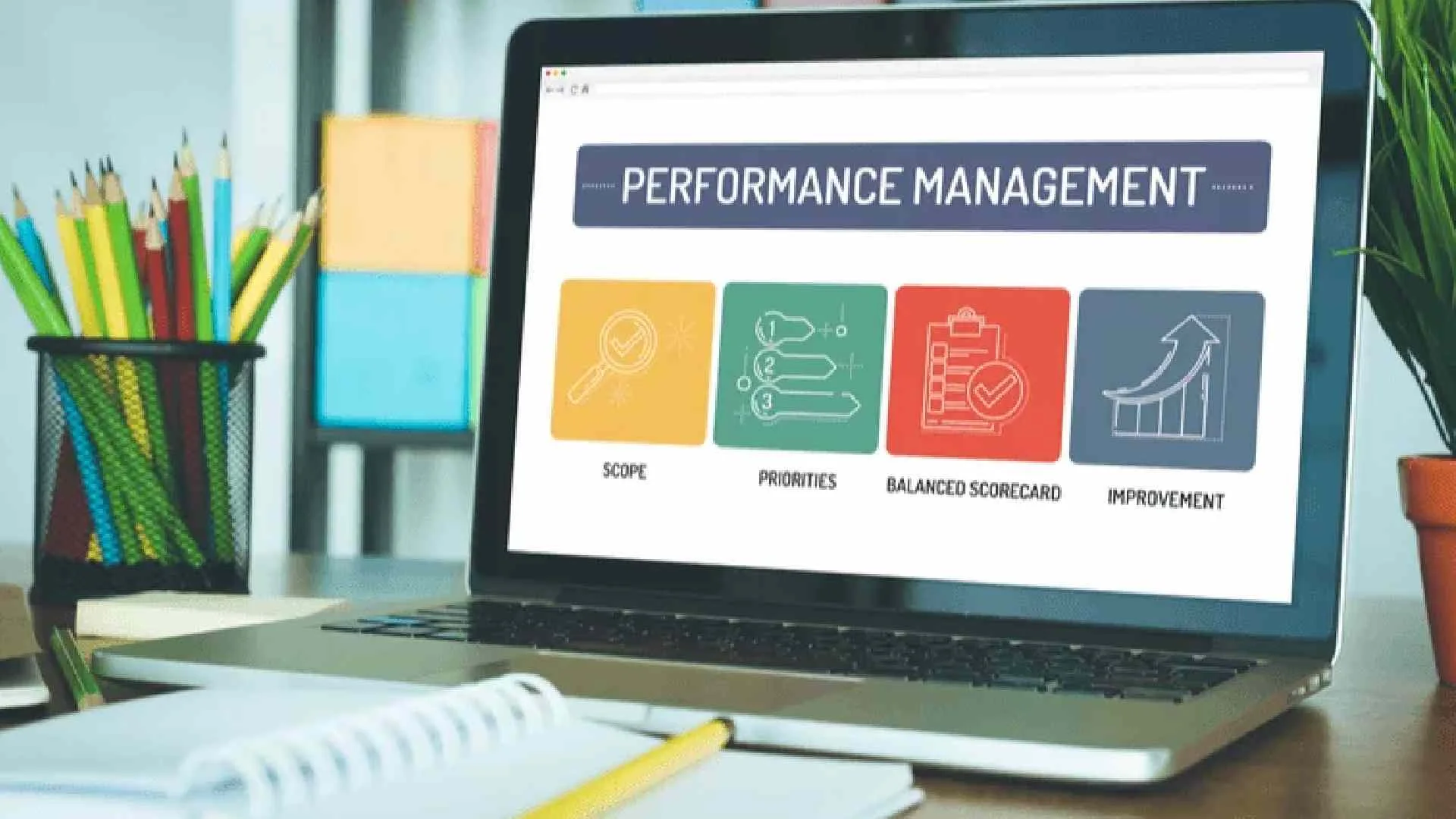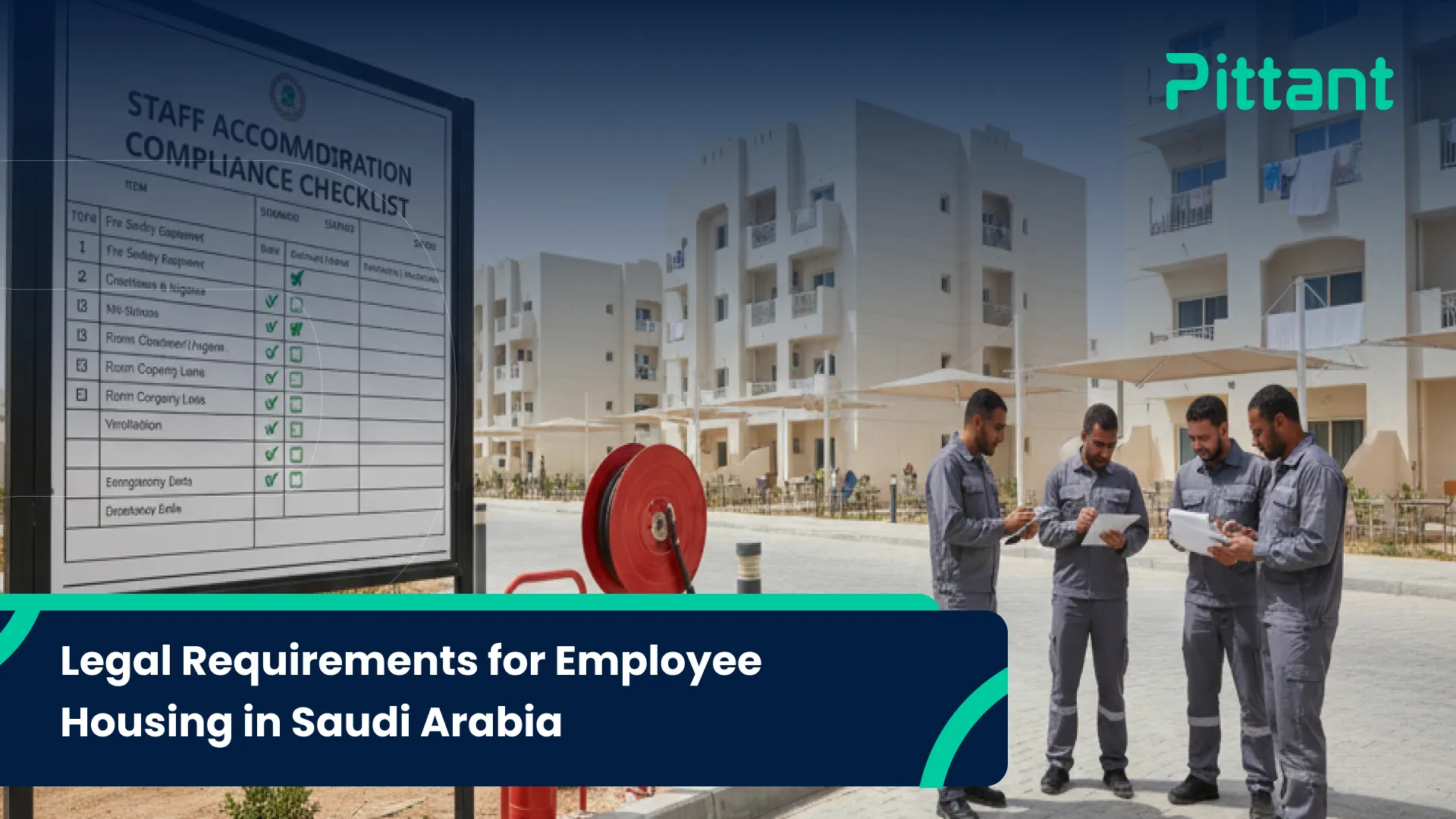Instituting an effective performance management system is a strategic attempt that is capable to enhance the organizational success. We will explore approaches for bringing individual goals and organizational objectives in alignment. Ensuring a tradition of accountability and achievement. Additionally, the insights needed to boost technology for seamless processes and enlightening a feedback-rich environment will be revealed.
In this article, we discover the complexities of building and implementing a reliable framework for proficient performance management system. The key factor to ensure today’s energetic work environment is promoting a system that not only assesses employee performance but also supports persistent improvement and growth. This much-needed guide will present you the vital components from setting clear objectives to providing constructive feedback, of a performance management system that goes beyond the sheer estimations.
What is Effective Performance Management System
An effective performance management system is more than just a routine evaluation process. It is a dynamic framework designed to empower employees and drive organizational success. At its core, a good effective performance management system helps employees reach their best, leading to the accomplishment of organizational goals.
Furthermore, key to this system is the alignment of individual objectives with overarching organizational objectives. Elaborating clear goals and enabling a mutual vision encourages employee to perform better for the immense success of the company. Providing regular feedbacks is equally essential. This offers better understanding to the employees, boosting performance, showing positive behaviors and improves where needed.
Moreover, an effective performance management system cultivates a culture of continuous improvement. It goes beyond the traditional annual review, encouraging ongoing dialogue between managers and employees. This ensures that goals remain relevant and adaptable to the dynamic nature of work.
In addition, leveraging technology amplifies the system’s efficiency, streamlining processes and providing real-time insights.
The practical implementation of technology supports smooth communication, ensuring performance data attainable and actionable for both employees and managers.
Moreover, a good performance management system is a deliberate investment in the progress and productivity of employee within the firm. It stays as a proof to the organization’s commitment to nurturing a high-performance culture. It enables each employee’s journey toward their best contribution significantly to the combined success of organizational goals.
Effective Performance Management System Goals and Objectives
In creating aims and objectives for an effective performance management system, simplicity and alignment with organizational priorities are dominant:
- Alignment with Organizational Strategy: Confirm that individual performance goals go in harmony seamlessly with the wider organizational strategy, nurturing a consistent and synchronized approach for the mutually aligned goals.
- Goal Relevance and Clearness: In addition, the goals are specified clearly, there will be no space for confusion. Clear goals conveying gives better understanding of expectations to the employees and focus on accomplishing calculable results.
- Continuous Feedback Mechanism: Establish a robust feedback mechanism that encourages ongoing communication between managers and employees. Regular feedback enhances performance by acknowledging successes and addressing areas for improvement promptly.
- Skill Development and Training Initiatives: Furthermore, incorporate goals related to skill development and training opportunities. This not only enhances individual capabilities but also contributes to overall organizational competence.
- Employee Engagement and Motivation: Foster an environment that promotes employee engagement and motivation. Goals should aim to enhance job satisfaction, acknowledging the intrinsic link between engaged employees and improved performance.
- Performance Recognition and Rewards: In addition, develop objectives for recognizing and rewarding outstanding performance. Recognition reinforces positive behaviors and serves as a motivator for sustained excellence.
- Technology Integration for Efficiency: Integrate technology to streamline performance management processes. Utilize tools that facilitate data-driven decision-making, making the system efficient and user-friendly.
- Flexibility and Continuous Improvement: Additionally, implant adaptability in goal-setting to accommodate changes in organizational priorities. Therefore, emphasize the importance of continuous improvement, encouraging employees to evolve with evolving goals and objectives.
Why is Effective Performance Management System Important?
An effective performance management system holds pivotal importance in the dynamic landscape of modern organizations, serving as a cornerstone for achieving both individual and collective success. This system is crucial for several compelling reasons.
Firstly, it establishes a clear framework for aligning individual goals with organizational objectives. By ensuring this alignment, employees gain a profound understanding of how their contributions directly impact the overarching success of the organization. This clarity cultivates a shared vision, fostering a sense of purpose and collective effort.
Secondly, the system facilitates continuous feedback, a key driver for professional development. Regular and constructive feedback provides employees with insights into their performance, allowing for timely adjustments and improvements.
Thirdly, an effective performance management system is instrumental in promoting a culture of accountability and transparency. Clear expectations and regular evaluations promote accountability among employees, inspiring a commitment to achieving set goals. Transparency in performance assessments builds trust and ensures fairness in recognizing and rewarding contributions.
Moreover, the system serves as a strategic tool for identifying and nurturing talent within the organization. By recognizing and developing high performers, organizations can strategically position themselves for future challenges and opportunities.
Why is Effective Performance Management System Important to Organizations
An efficient HR software solution holds paramount importance for organizations, serving as a linchpin in achieving sustained success and growth through effective performance management. Several key factors underline the significance of integrating HR software into the organizational framework.
First and foremost, a well-designed performance management system aligns individual efforts with organizational goals. This alignment ensures that every employee understands their role in contributing to the overarching success of the organization, fostering a sense of shared purpose and direction.
Moreover, the system facilitates regular and meaningful feedback, creating a continuous loop of communication between employees and management. This ongoing dialogue not only enhances individual performance but also allows for prompt adjustments and improvements, contributing to a dynamic and agile workforce.
Transparency and accountability are inherent to an effective performance management system. Clear expectations and consistent evaluations instill a sense of accountability among employees, promoting a culture where responsibilities are shouldered, and contributions are recognized.
Strategically, the system aids in talent identification and development. Organizations can strategically nurture and deploy talent by identifying high-performing individuals, ensuring that those with the skills and potential to drive success fill key positions.
Furthermore, an effective performance management system contributes to employee satisfaction and engagement. Recognizing and rewarding achievements, coupled with opportunities for skill development, creates a positive work environment that motivates employees to excel.
What Are the Phases of Effective Performance Management System?
The stages of an effective performance management system are important to promoting a high-performance culture within an organization. These stages offer a planned approach to dealing and improving employee performance.
Follow this stages to do an effective performance management system for your company:
Planning
For an effective performance management system, the planning step is a crucial foundation that sets the path for organizational success. This stage revolves around the precise process of identifying goal and strategies.
- Strategic Goal Setting: At the heart of the planning stage is the strategic setting of performance goals. These goals are not merely tasks but represent key milestones directly linked to organizational objectives. Clear and specific goals provide employees with a roadmap, ensuring their efforts are purposeful and contribute to the broader success of the organization.
- Alignment with Organizational Objectives: A flawless alignment with institutional objectives is important during the planning stage. This makes sure that individual performance goals are in collaboration with the overarching strategic direction of the organization. With the understanding of how their contribution links the employees with wider goal spectrum, it develops a sense of purpose and commitment.
- Individual Development Plans: Planning extends beyond performance expectations to encompass individual development. Organizations collaboratively work with employees to identify areas for skill enhancement and career development. This proactive approach not only improves current performance but also prepares employees for future challenges.
- Clarity and Communication: Effective planning demands clarity and open communication. Transparent communication of expectations and goals during this stage ensures that employees comprehend what is expected of them. This clarity sets the stage for a positive and collaborative working relationship between managers and their teams.
Employee Recognition
An effective performance management system should prioritize recognizing and rewarding employees. It is crucial that employees feel valued and appreciated for their work and dedication. Neglecting employee recognition is likely to have a negative impact on voluntary turnover.
Regular and honest feedback and reviews are essential—frequent and specific feedback enhances individual performance. The more consistent and precise the feedback, the better employees can understand their work. Employees desire regular insights into their performance, and well-informed employees are better equipped to enhance and excel in their roles.
Monitoring
This is another dynamic step of an effective performance management system. This comes with persistent observation and evaluation of workers performance. This stage keeps a check that the individuals are on the right path to achieve their goals and contribute proficiently to success of the company.
- Real-Time Observation: Monitoring encompasses real-time observation of employees’ day-to-day activities and tasks. Managers actively engage with their teams, providing immediate feedback and guidance as needed. This proactive approach allows for timely interventions, ensuring that performance remains aligned with expectations.
- Performance Metrics and Key Indicators: Moreover, establishing performance metrics and key indicators is central to the monitoring stage. These metrics serve as quantifiable measures of success and provide a clear framework for assessing individual contributions. Regularly tracking these indicators allows organizations to gauge progress and make data-driven decisions.
- Feedback Loops: In addition, feedback is a cornerstone of the monitoring stage. Continuous feedback loops between managers and employees facilitate ongoing communication about performance. This iterative process not only keeps employees informed of their progress but also allows for the identification of areas for improvement and recognition of achievements.
- Adjustments and Course Corrections: Monitoring is not solely about assessment but also about making necessary adjustments. Managers, in collaboration with employees, identify any challenges or obstacles and implement course corrections as needed. This adaptive approach ensures that performance remains dynamic and responsive to evolving circumstances.
- Employee Empowerment: Moreover, the guidance and facilitie the employees needed are provided to them by the help of monitoring stage. It promotes the environment where the workers feel seen, heard and paid attention to with the resourceful approach.
Developing
The developing stage within an effective performance management system is a transformative phase focused on enhancing individual capabilities, fostering growth, and preparing employees for future challenges. This stage goes beyond assessment, aiming to unlock and maximize the full potential of each team member.
- Skill Enhancement Initiatives: Firstly, central to the developing stage is the identification of skill gaps and the implementation of targeted initiatives to address them. Organizations invest in training programs, workshops, and resources designed to enhance specific skills and competencies, ensuring that employees are well-equipped to excel in their roles.
- Individualized Development Plans: In addition, developing is a personalized journey, and individualized development plans play a crucial role. Collaboratively crafted by employees and their managers, these plans outline clear paths for professional growth. They consider career aspirations, performance feedback, and organizational objectives, aligning individual development with broader strategic goals.
- Mentorship and Coaching: Furthermore, integrating these coaching programs is important to the developing stage. Experienced mentors provide assistance, share visions, and offer support to help people set on their professional journeys. This personalized initiative adds to a culture of continuous learning and betterment.
- Insights for Growth: Continuous4 feedback remains a transforming step during the developing stage. The feedback does not bring forth the areas of lackness but also enlighten the strengths and accomplishment. This positive reinforcement induces a growth mindset and motivates employees to strive for distinction.
- Career Path Discussions: In addition, the developing stage promotes open discussions about career journey and aspirations. Managers take interest in the goals of his employees to understand their struggle and offer assistance on how to accomplish them. This outstanding collaboration brings a sense of acknowledgment and commitment.
Rating & Rewarding
In the culmination of an effective performance management system, the rating and rewarding stage serves as the definitive moment for acknowledging and appreciating individual contributions. This phase involves assessing performance against predefined metrics and recognizing employees for their achievements.
Objective evaluation of performance is central to the rating and rewarding stage. Managers assess employees based on established criteria, providing a comprehensive overview of accomplishments and areas for improvement.
Moreover, successful completion of the performance cycle warrants recognition and appreciation. Acknowledging employees for their efforts, achievements, and dedication fosters a positive work environment and reinforces a culture of excellence.
The rating and rewarding stage may involve both monetary and non-monetary rewards. This could include salary adjustments, bonuses, promotions, or non-financial incentives like additional responsibilities or professional development opportunities.
Furthermore, rewards are intricately linked to the alignment of individual performance with organizational goals. Recognizing contributions that directly contribute to the company’s success reinforces the connection between individual efforts and overall achievements.
To read more about this and other interesting topics, check our insights. However, if you are interested in our services, do not forget to visit our contact section.
FAQs
1. What are the essential components of an effective performance management system?
An effective system includes clear goal setting, regular feedback, performance tracking, employee development plans, and fair rewards. It should also use measurable KPIs and align all objectives with the company’s strategic vision.
2. How often should performance goals and objectives be set and reviewed?
Goals should be set annually or biannually and reviewed quarterly. Regular check-ins help track progress, address challenges, and make timely adjustments.
3. What role does continuous feedback play in a successful performance management system?
Continuous feedback keeps communication open between employees and managers. It helps identify issues early, reinforces positive behavior, and encourages ongoing development.
4. How can organizations integrate technology to boost the efficiency of their performance management processes?
Technology automates reviews, simplifies goal tracking, and provides real-time performance data. It also enhances transparency, reduces paperwork, and supports remote performance management.
5. What steps can managers and HR take to ensure the performance management system aligns individual goals with broader organizational objectives?
Managers and HR should link employee goals to company priorities, involve staff in setting measurable objectives, and review progress regularly. Consistent communication and data-driven insights ensure alignment and accountability.





